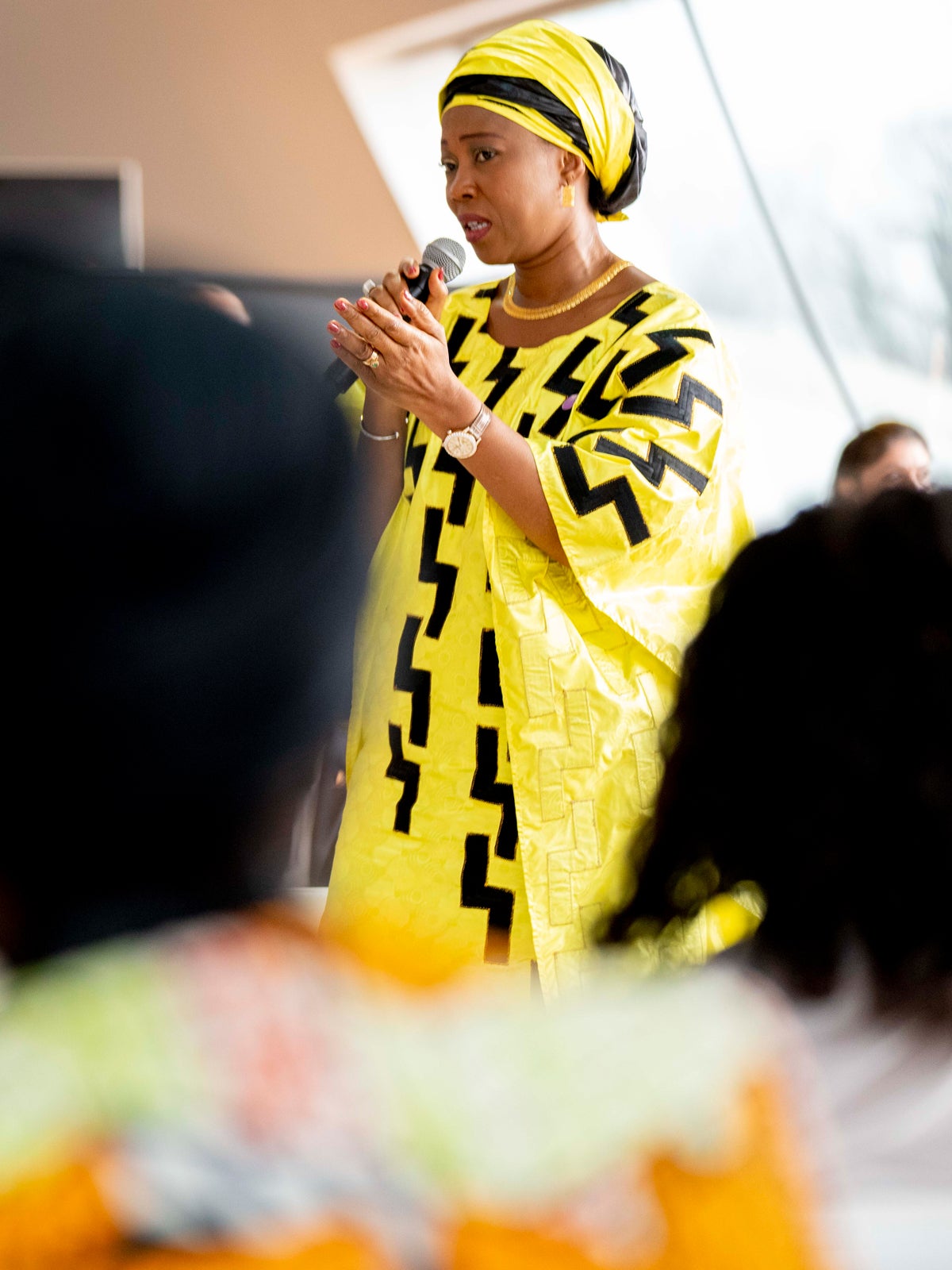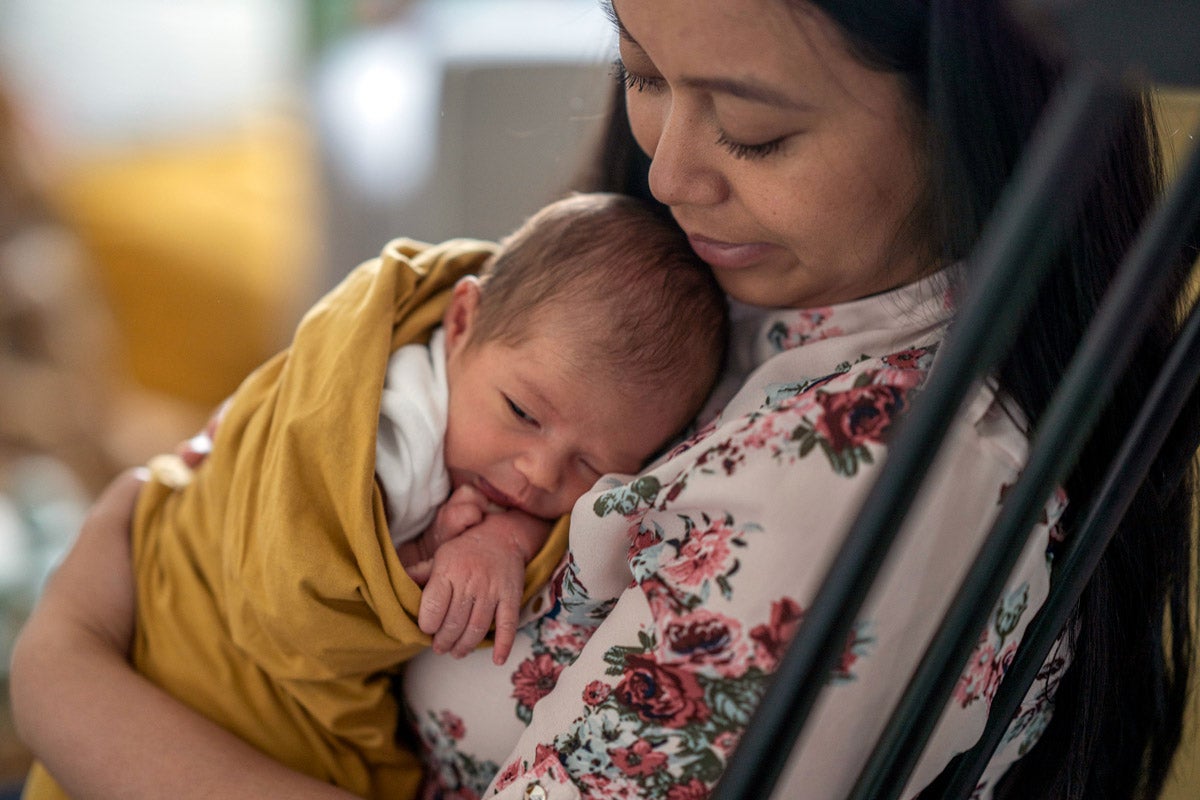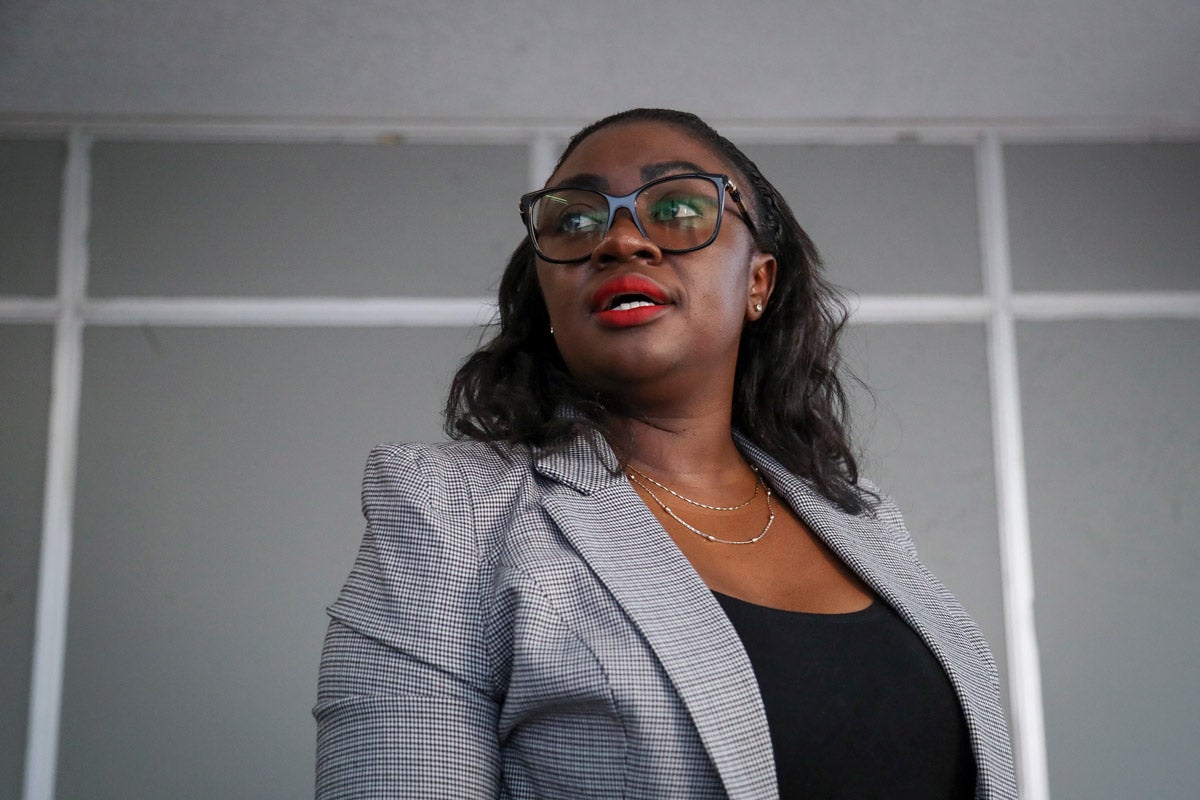
People
10 minutes with First Lady Fatima Bio
Fatima Maada Bio is an actress, a writer, and the first lady of Sierra Leone—but before anything else, she is an activist. Inspired by her personal experience and the stories of girls and women she has met across her country, Bio has led campaigns against gender-based violence, rape, and the sexual exploitation of children. Her flagship campaign, “Hands Off Our Girls,” launched in 2018; one year later, her husband declared rape a national emergency and initiated a series of legal reforms on sexual violence.
Gender-based violence is a major public health issue globally. Survivors are at risk for injury, infection, and complications from pregnancy, as well as depression, post-traumatic stress disorder, and other mental illnesses. In some cases, family members can face physical and mental health impacts, too. As the first lady has seen firsthand, the health consequences of gender violence can be heartbreaking.
During Women’s History Month, Bio spoke at The Studio at Harvard T.H. Chan School of Public Health. She also sat for a Zoom interview with Jina Moore Ngarambe, managing editor of Harvard Public Health.
HPH: Fighting gender-based violence has been a personal commitment of yours. What’s the root of this commitment?
Bio: When I was 11 years old, I was married off to someone I had seen all my life as my uncle. [He was] someone I can run to for things I need, or if I have a problem in my family home; this is my go-to person.
I knew that my mother didn’t want me to be married off, but she was terrified of speaking up; she was very scared that my dad was going to leave her. The only thing that saved me is that when the war came to my town… [When] we became displaced, she was the one who encouraged me not to follow them. She told me: If you want to save yourself, this is the only chance you have—don’t come with us.
Sign up for Harvard Public Health
Delivered to your inbox weekly.
HPH: The gender violence in the story of your childhood is also intergenerational.
Bio: Absolutely. When a woman is in a marriage where you can’t speak up, you just have to go on with whatever is there—I lived through that. I saw my mom go through that for a very long time. That’s a reason why I refused to be silenced. We are all here for a journey, and if my journey is to save as many lives as possible, that’s what I’m going to do. I’ve been blessed that God gives me an opportunity to have a platform to speak to more people, to empower young girls to understand that our generation and their generation is totally different.
HPH: How do you see gender-based violence as a public health issue?
Bio: The bodies of young girls are not ready to carry a baby, and they become pregnant through early marriage, through rape, through early pregnancy. They don’t go for antenatal care—no checkup, nothing. When they’re due, they don’t know what to do, and they go to the hospital [too late]. For me, that’s the most obvious example.
HPH: Another issue that is often seen as a link between gender violence and public health is FGM, or female genital mutilation. I know it can also be a sensitive topic, but can you tell us a bit about the situation in Sierra Leone?
Bio: For me it’s not a sensitive topic. You have a lot of women who talk about FGM who will say a lot of [negative] things. That’s their own take. I was circumcised when I was a child. I don’t know how uncircumcised women feel because I’ve always been circumcised. I have three children; I never had any issue having a baby. Do I enjoy sex? I do. I am comfortable with my body. But you do have women who complain… I’ve never been to a hospital where they say these are victims of FGM. Until people can show me what FGM is doing in Sierra Leone, I’m not part of the conversation.
What I do is from my heart. I’m not doing it because of my position; I’m doing it because I understand what victims go through—because I have been a victim before.
HPH: Where do you look for inspiration in your fight against GBV? Which activists do you look to, inside or outside Sierra Leone?
Bio: I’ve always drawn my strength from my mom—the things she does silently, without saying anything. I always go back to my mother for advice. Internationally, I see a lot of women trying to change the narrative. Do I imitate them? I don’t. I only want to do what I’m able to and capable of doing. What I do is from my heart. I’m not doing it because of my position; I’m doing it because I understand what victims go through—because I have been a victim before.
I have no diplomacy in my actions; it is just who I am… In some cases, my me is good enough. In some cases, my me is not good enough.
Top image: Fatima Maada Bio, the first lady of Sierra Leone, speaks at the U.S.-Africa Leaders’ Summit in Washington, D.C., in 2022. (AP Photo / Andrew Harnik)


